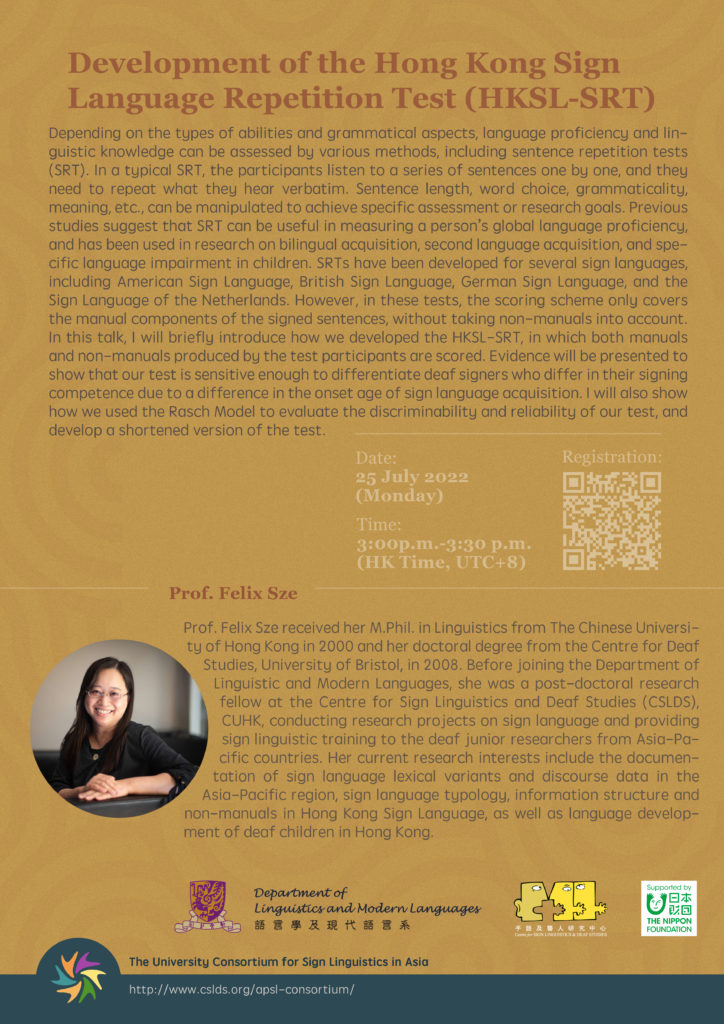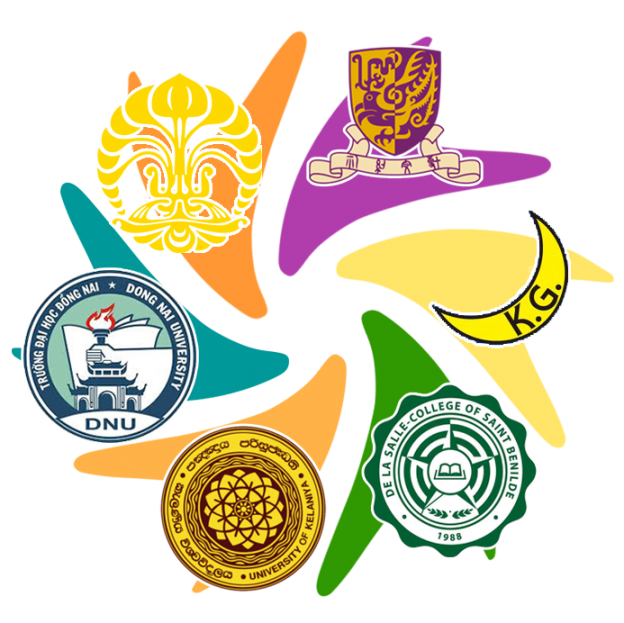Click HERE for the presentation video with sign interpretation.

Depending on the types of abilities and grammatical aspects, language proficiency and linguistic knowledge can be assessed by various methods, including sentence repetition tests (SRT). In a typical SRT, the participants listen to a series of sentences one by one, and they need to repeat what they hear verbatim. Sentence length, word choice, grammaticality, meaning, etc., can be manipulated to achieve specific assessment or research goals. Previous studies suggest that SRT can be useful in measuring a person’s global language proficiency, and has been used in research on bilingual acquisition, second language acquisition, and specific language impairment in children. SRTs have been developed for several sign languages, including American Sign Language, British Sign Language, German Sign Language, and the Sign Language of the Netherlands. However, in these tests, the scoring scheme only covers the manual components of the signed sentences, without taking non-manuals into account. In this talk, I will briefly introduce how we developed the HKSL-SRT, in which both manuals and non-manuals produced by the test participants are scored. Evidence will be presented to show that our test is sensitive enough to differentiate deaf signers who differ in their signing competence due to a difference in the onset age of sign language acquisition. I will also show how we used the Rasch Model to evaluate the discriminability and reliability of our test, and develop a shortened version of the test.
![]()
